The honey and lemon infusion is inspired by the winter couple par excellence. A mixture rich in trace elements, vitamin C and natural antimicrobials, which cannot be missed in the colder months. Perfect when the pleasant summer leaves and autumn arrives, the infusion is suitable for those who want something warm to feel better. It lays the basis for enhancing the drink with honey and lemon, creating a useful mixture to better face each day with energy and healthy nutrients. The aroma takes you back to beautiful days, and the intense flavor of fennel and anise fades towards more delicate, slightly sweet and floral notes with marigold and elderberry.
Honey and lemon infusion: properties and benefits
The combination of ingredients in the blend creates a panacea that strengthens the immune system, purifies the digestive system and gives the right energy to face daily stress. By taking this infusion rich in vitamin C, we obtain benefits to strengthen our defenses against colds and flu, coughs and sore throats. Elderberry, a component of this mixture, has been used for centuries throughout Europe for its antioxidant and tonic properties. : berries are rich in vitamins, mineral salts (potassium, phosphorus, iron, magnesium, etc.) and substances such as quercetin and rutin - useful for correct blood and lymphatic circulation. The infusion also includes flowers, which stimulate the expulsion of toxins from the body and sweating (useful in case of flu). They are excellent as emollients and expectorants in the case of inflammation of the respiratory tract. Fennel can also help the body fight agents that attack the immune system with its natural purifying action. Contains vitamins A, C, B6 and other antioxidants. The anise element enhances the phytotherapeutic properties of the infusion as an expectorant and balsamic, to combat irritation of the respiratory tract (phlegm, excess mucus, etc.). Anise essential oil, the main component of which is anethole, provides qualities for the natural treatment of congestion in the respiratory tract. Anise and fennel bring purifying and soothing properties to the infusion for the stomach, which help correct digestion, together with the apple. The phytotherapeutic properties of the digestive drink offer relief from constipation and colic conditions, and from other problems related to the digestive system (flatulence, abdominal bloating, gas, etc.). The purifying effect of the mixture eliminates excess toxins from the body, promoting diuresis and the detox effect.
Fruits and flowers
Elderflowers and berries derive from different varieties of the Sambucus tree, a plant belonging to the Adoxaceae family. The most common type is Sambucus nigra, also known as European elderberry or black elderberry. It grows to about 30 feet tall, has small white or cream-colored flowers, and bears berries in small black or blue-black clusters. Other varieties include American elderberry, dwarf elderberry, blue elderberry, red-fruited elderberry. Fennel (Foeniculum vulgare) is a plant of the Apiaceae (Umbelliferae) family. It is native to the Mediterranean, where it has been consumed as a vegetable for centuries. Every part of the plant is fragrant, from the yellow flowers to the green and then greyish fruits, improperly defined as seeds. Anise comes from Pimpinella anisum (anise), an aromatic plant of the Umbelliferae family. It represents one of the oldest medicinal plants known in Europe, up to 50 cm tall, with white flowers and small seeds, with colors from green to yellow, which ripen from August to September. The apple tree and the Malus domestica of the Rosaceae family. It is a tree native to Asia, now widespread throughout the planet. Apple fruits differ in color, size, consistency of the pulp. The many varieties have been used in human nutrition for millennia. Calendula officinalis is a herbaceous plant, which grows up to about 70 centimeters. Its yellow-orange flowers, which is why it is also called fiorrancio, are known for their beneficial and soothing cosmetic properties.
Nutritional values of honey and lemon infusion
The main active ingredients of the mixture are vitamin C, beta-carotene and minerals such as potassium, phosphorus and calcium. Contains beneficial antioxidants (flavonoids, phenolics and anthocyanins), anethole, rutin and quercetin, rosmarinic acid and apigenin. How to use the ingredients in the infusion The infusion is obtained by inserting approximately 3-5 grams of the mixture with water at 100 °C into a cup (250 ml). Leave to infuse for 10 to 12 minutes before drinking. Add honey and lemon to enhance its propertiesriity. Do not add honey during the infusion, as boiling water eliminates the honey's useful enzymes. When the water reaches room temperature it will be excellent for adding honey.
Honey and lemon infusion: side effects and contraindications
Each infusion should be taken in moderation, to avoid unwanted effects. It is necessary to respect the recommended doses and not exceed the consumption of the infusion for too long periods. Excessive intake can cause constipation, diarrhea, vomiting, headache and fatigue. Caution advised for pregnant or breastfeeding women.

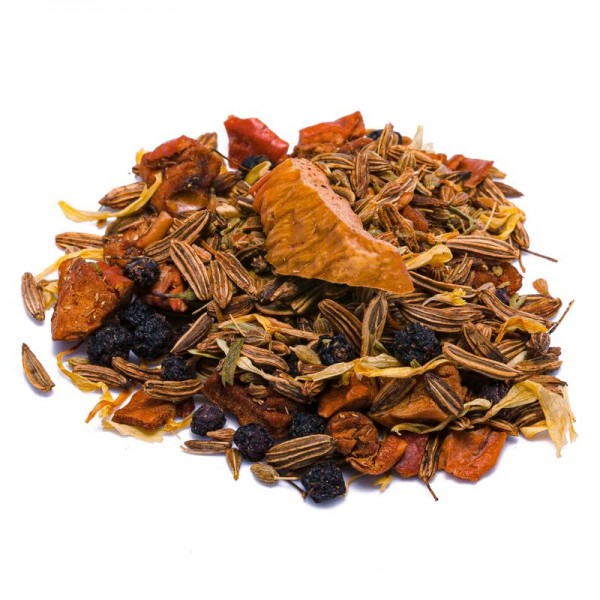









 No reward points for this product.
No reward points for this product.
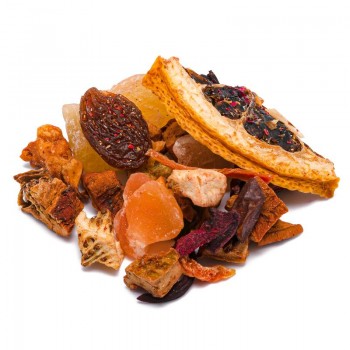
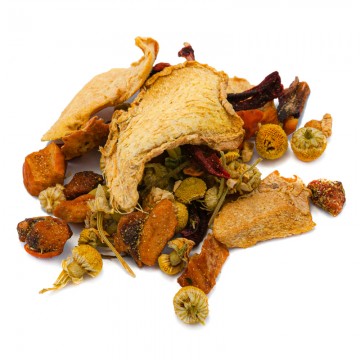
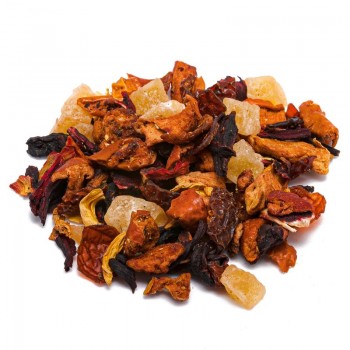
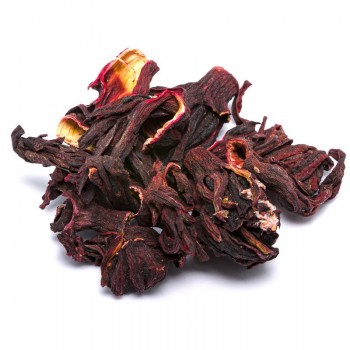
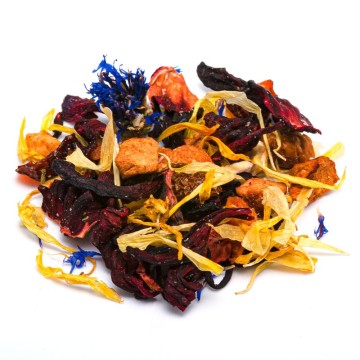
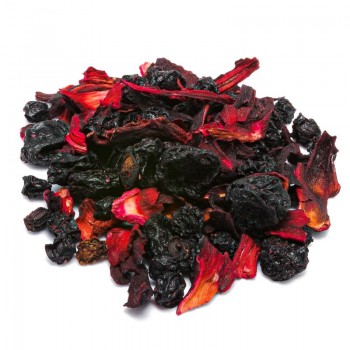
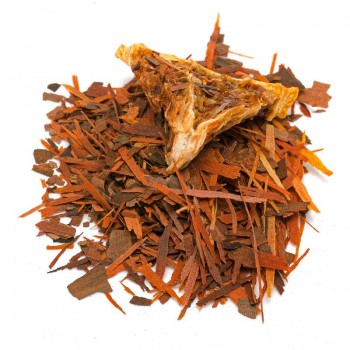
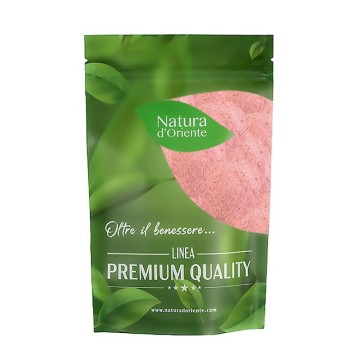
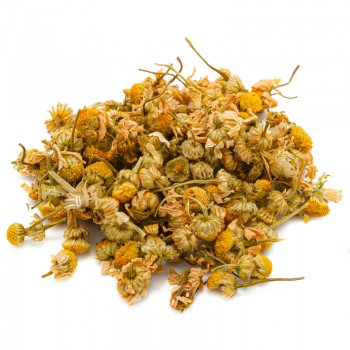
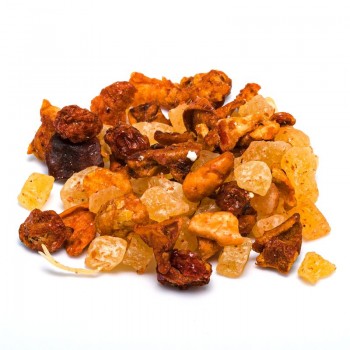
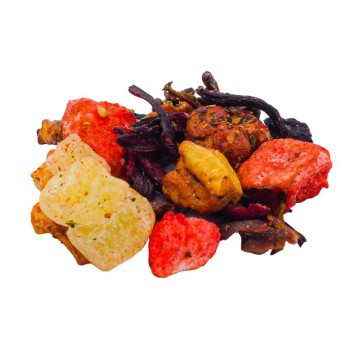
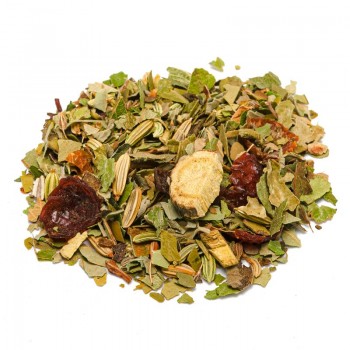
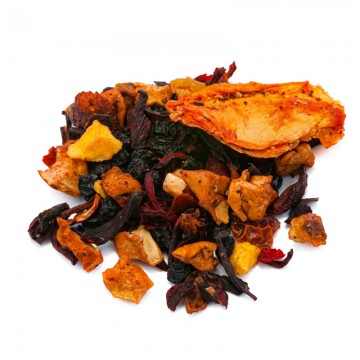
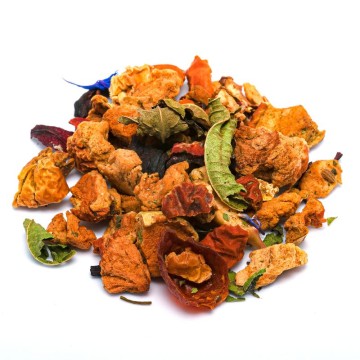
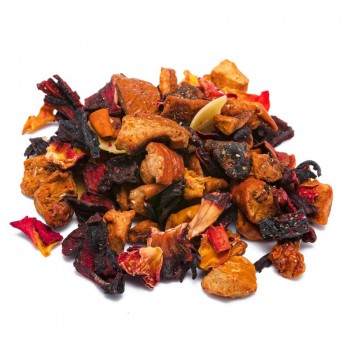
![infuso lime mirtilli rossi [Natura d'Oriente]](https://www.naturadoriente.com/3551-home_default/lime-infused-cranberries.jpg)